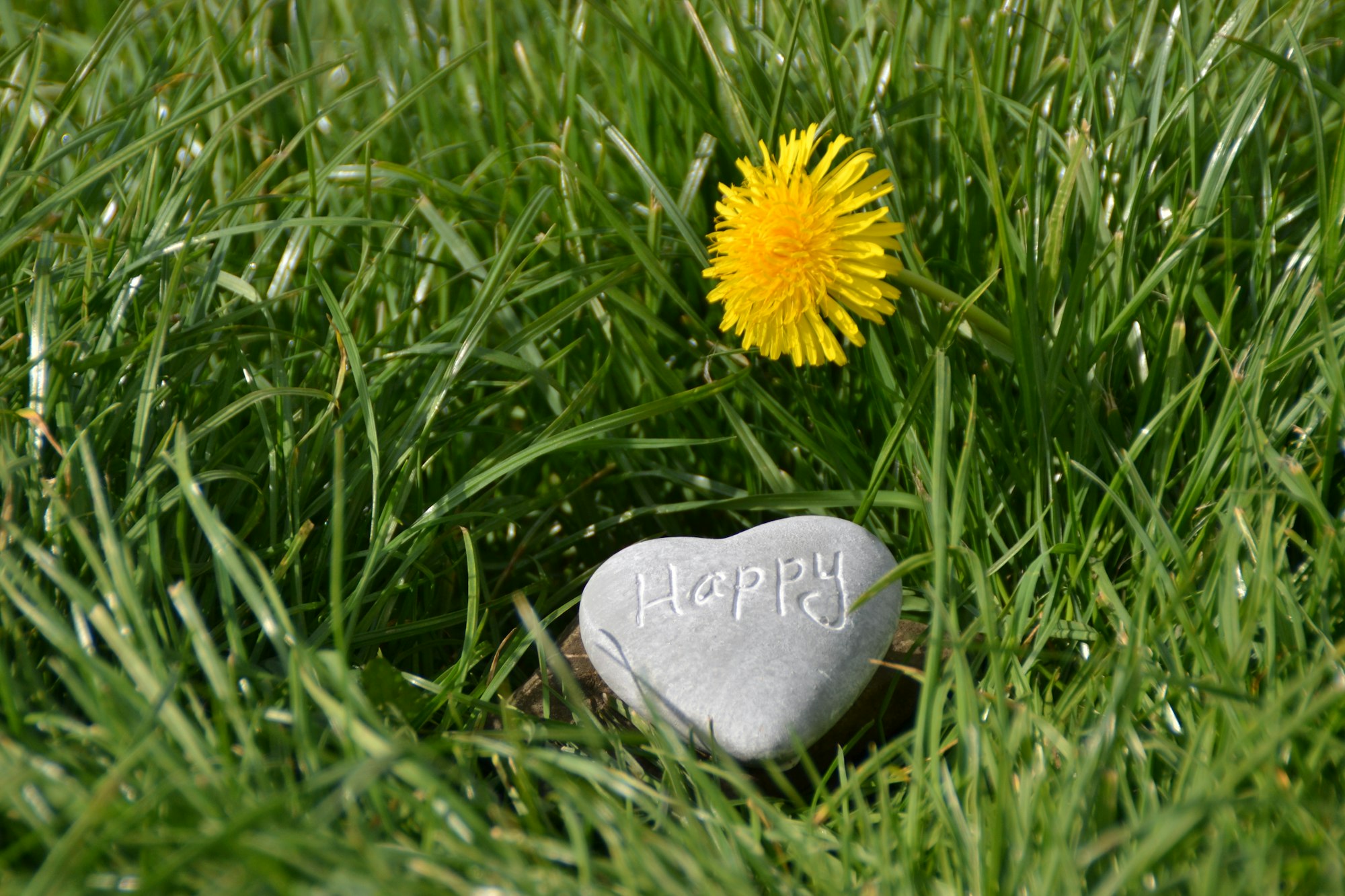In Search of Happiness:
We get this perception that if we are not happy all of the time then we are missing out, there's something wrong with our lives or with us. However, we have to remember it's only one side of the 'beach ball'.

Contentment and happpiness are terms often used interchangeably but carry subtle distinctions that can significantly impact our perspective on life and overall well-being. This article explores the pros and cons of the pursuit of happiness, delves into the virtues of contentment, and provides practical tips for cultivating both states for our long-term health and well-being.
There's a lot in social media about the pursuit of happiness, sometimes it almost feels like you can buy it off the shelf. Seeing all these amazing things people are doing, enjoying and achieving paints an image that they are 100% happy. We get this perception that if we are not happy all of the time then we are missing out, there's something wrong with our lives or with us. However, we have to remember it's only one side of the 'beach ball'. We don't know or see what else is happening in their lives.
If we think about it, can we be happy all the time? Is this really achievable? I've learnt a lot about myself and evolved my thinking through pain and heartache which I wouldn't haven't learnt if life had been a 'bed of roses'. So should we be so focussed on happiness or should we look to achieving a state of contentment instead? What's the difference?
They can represent slightly different emotional states.
Happiness often implies a more fleeting and emotional experience characterised by feelings of joy, pleasure, or satisfaction. It can be associated with external circumstances, events, or even momentary pleasures. For example, laughing at someone's joke or having a win on a lottery scratch card. The pursuit of happiness might involve seeking pleasurable experiences, positive emotions, and a generally upbeat mood. Thrill seeking is a way of pursuing happiness resulting in great moments of joy, excitement or even fear.
Contentment, on the other hand, tends to be a deeper and longer lasting sense of satisfaction. It involves a state of being at peace with oneself and one's life, regardless of external circumstances. Contentment can coexist with a range of emotions, both positive and negative, but it reflects a more stable and accepting state of mind.
In terms of long-term health and well-being, both happiness and contentment play crucial roles. However, some argue that seeking contentment may be a more sustainable goal because it is less dependent on external factors. Contentment involves accepting life's ups and downs, finding peace within oneself, and cultivating a sense of gratitude for what one has.
Contentment vs Happiness: Pros and Cons

The Virtues of Happiness:
Pros:
- Positive Emotions: When we actively seek happiness, we engage in activities and experiences that evoke positive emotions like joy, excitement, and pleasure. These moments contribute to our overall well-being, enhancing life satisfaction.
- Motivation and Goal Achievement: The pursuit of happiness can be a powerful motivator, driving us to set and achieve meaningful goals. Accomplishments, whether big or small, provide us with a sense of purpose and fulfillment.
- Resilience: Developing a positive mindset through the pursuit of happiness can enhance our resilience in the face of challenges. Positive emotions and an optimistic outlook may help us navigate difficulties with greater ease.
Cons:
- External Dependency: The constant pursuit of happiness often (not always) relies on external factors such as success, relationships, or material possessions. This external dependency makes happiness fleeting and vulnerable to changes in circumstances.
- Pressure and Stress: The relentless pursuit of happiness can create pressure and stress, especially in a society that often emphasises achievement and comparison. Unrealistic expectations may lead to disappointment and dissatisfaction.
- Neglect of Negative Emotions: Overemphasising the pursuit of happiness might lead us to suppress or ignore negative emotions. Avoiding these emotions can hinder our personal growth and resilience in the face of adversity.
The Virtues of Contentment
Pros:
- Stability and Inner Peace: Contentment involves finding peace within ourselves, independent of external circumstances. This stable state of mind provides a foundation for navigating life's challenges with resilience and grace.
- Gratitude and Acceptance: Contentment is often accompanied by a sense of gratitude for what we have and an acceptance of life's imperfections. This mindset fosters a positive outlook and an appreciation for the present moment and can avoid the sense that the 'grass is greener' elsewhere.
- Emotional Equilibrium: Contentment allows for a more balanced experience of emotions. While positive emotions are valued, contentment acknowledges the inevitability of negative emotions, promoting a healthy emotional equilibrium.
Seeking a Balance: Practical Tips

1. Cultivate Gratitude:
- For Happiness: Practice gratitude to appreciate the positive aspects of our lives.
- For Contentment: Recognise and be thankful for what we have, fostering a sense of contentment with our current circumstances.
2. Practice Mindfulness:
- For Happiness: Engage in mindfulness to fully savor and appreciate joyful moments.
- For Contentment: Use mindfulness to find peace within, irrespective of external events, promoting a sense of contentment.
3. Set Realistic Goals:
- For Happiness: Establish achievable goals that contribute to moments of joy and accomplishment.
- For Contentment: Develop long-term goals that align with our values, fostering a sense of purpose and contentment.
4. Build Positive Relationships:
- For Happiness: Nurture positive relationships to experience joy and connection.
- For Contentment: Cultivate deep, meaningful relationships that contribute to a sense of contentment and emotional support.
5. Embrace Challenges:
- For Happiness: View challenges as opportunities for growth and overcoming obstacles, leading to a sense of accomplishment and happiness.
- For Contentment: Embrace life's challenges as part of our journey, cultivating resilience and contentment through acceptance.
6. Practice Self-Compassion:
- For Happiness: Be kind to ourselves in moments of success and failure, promoting a positive mindset.
- For Contentment: Extend self-compassion to acknowledge imperfections, fostering contentment with who we are.
7. Give Back:
- For Happiness: Engage in activities that bring joy through helping others.
- For Contentment: Contribute to the well-being of others to find meaning and contentment in making a positive impact.
Both play a valuable part so embrace them both.
As we navigate our journey to well-being, the choice between seeking happiness and aiming for contentment is not a rigid one. Both states contribute valuable elements to our overall well-being, and finding a balance between them is key. The pursuit of happiness can bring moments of joy, motivation, and resilience, but it may also lead to external dependencies and stress. On the other hand, contentment provides stability, inner peace, and a more balanced emotional experience, but it should not be mistaken for complacency or a lack of ambition.
Integrate both happiness and contentment into our lives. Cultivate gratitude, practice mindfulness, set realistic goals, build positive relationships, embrace challenges, practice self-compassion, and give back to strike a balance. By appreciating the nuances of both happiness and contentment, we can foster a holistic sense of well-being that withstands the complexities of life and promotes our long-term health and fulfillment.
What will you do differently, more of or stop to cultivate both of these emotional states? Whatever you choose to do, enjoy the journey.
If you would like to explore these or other areas of your life or career in more detail please get in touch - contact me at joanne@joannecoaching.com.
Joanne